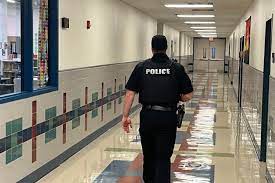Security guards play a crucial role in maintaining the safety and security of individuals, properties, and assets. Their presence is often a deterrent to potential threats, and they are trained to respond to various situations. However, it's essential to clarify the boundaries of their authority and responsibilities. In this article, we will explore what security guards can and can't do, shedding light on the legal and ethical aspects that define their role.
Roles and Responsibilities:
-
Surveillance and Monitoring: Security guards are primarily responsible for monitoring the premises they are assigned to protect. This includes using surveillance equipment, patrolling the area, and keeping an eye out for any suspicious activities. They can detain individuals who are trespassing or engaged in illegal activities on the property.
-
Access Control: Controlling access to a specific area is another vital function of security guards. They can check identification, verify credentials, and ensure that only authorized personnel enter restricted zones. However, it's crucial to note that they cannot engage in discriminatory practices and must follow established protocols.
-
Emergency Response: Security guards are trained to respond to emergencies such as fires, medical incidents, or other crisis situations. They can assist in evacuations, provide first aid, and coordinate with emergency services. Their role is to maintain order and ensure the safety of individuals until professional help arrives.
-
Conflict Resolution: Security guards often act as mediators in conflicts that may arise on the premises they are securing. They can use verbal communication and de-escalation techniques to resolve disputes peacefully. However, their authority does not extend to physical force unless absolutely necessary for self-defense or the defense of others.
-
Reporting: Security guards are responsible for documenting incidents and providing detailed reports to their supervisors. This documentation is crucial for legal and investigatory purposes. They should accurately record the sequence of events, actions taken, and any relevant details.
Legal Constraints:
-
Use of Force: Security guards must adhere to strict guidelines regarding the use of force. While they have the right to protect themselves and others, excessive force is prohibited. The level of force used should be proportionate to the threat faced, and lethal force is generally only justified as a last resort.
-
Arrest Powers: In many jurisdictions, security guards do not have the same arrest powers as law enforcement officers. While they can detain individuals until the arrival of the police, they cannot make formal arrests. It's essential for security personnel to be aware of the legal limitations in their jurisdiction.
-
Search and Seizure: Security guards cannot conduct searches or seizures without proper authorization. They must respect individuals' privacy rights and adhere to legal procedures. If a situation requires a search, it is advisable to involve law enforcement authorities.
-
Discrimination and Profiling: Security guards are prohibited from engaging in discriminatory practices or profiling based on race, ethnicity, gender, or other protected characteristics. Any actions that infringe upon individuals' rights may result in legal consequences. Read more about What security guards can and can’t do
Ethical Considerations:
-
Professional Conduct: Security guards are expected to maintain a high level of professionalism. This includes treating all individuals with respect, regardless of their background or circumstances. Professionalism contributes to a positive public image and fosters cooperation with the community.
-
Confidentiality: Security personnel often have access to sensitive information about the organizations they serve. Maintaining confidentiality is crucial to preserving trust and preventing potential security breaches.
Conclusion:
In conclusion, security guards play a vital role in safeguarding people and property. Understanding the scope of their authority, legal constraints, and ethical responsibilities is crucial for ensuring a safe and secure environment. As security measures continue to evolve, ongoing training and education are essential for security personnel to adapt to new challenges while upholding the highest standards of professionalism and integrity. Visit official website californiasecurityservice.com


No comments yet